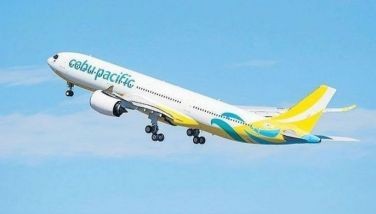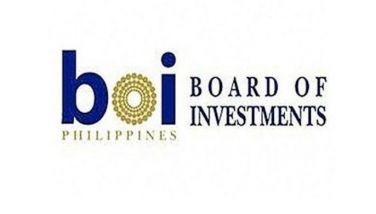Asean Law Association (ALA): 25 years & beyond
November 22, 2005 | 12:00am
In 1979, the late Teuku Mohamed Radhie of the Indonesian Ministry of Justice, teamed up with Edgardo J. Angara, then president of the Philippine Integrated Bar, in making the rounds of the five ASEAN nations including the Philippines, to organize the Asean Law Association. In Mr. Radhie’s words then, "The Bangkok Declaration creating the ASEAN has been in force since 1967. It is high time the members of the ASEAN legal community organize in a manner that will have a lasting impact on ASEAN legal cooperation".
We were convinced. Thus, in 1979 in Jakarta, two historic papers authored by Tan Sook Yee, then Dean of the University of Singapore and Edgardo Angara, were submitted to a motley gathering of ASEAN lawyers, judges and teachers of Law.
All these efforts came to fruition in November 1980 with the holding of the first General Assembly in Manila which adopted ALA’s new Constitution. Serving as Chairman of the Working Committee of that first ever Assembly, I saw first hand the intense desire of the ASEAN members of the legal profession, amidst the diversity of cultures and history, to blend together under one organization for mutual cooperation. As aptly stated by the late Lord President, Tun Mohamed Suffian of Malaysia (thereafter an ALA President):
"It is desirable that we judges, lawyers and law teachers should get together to discuss legal problems and ascertain how they have been solved in each other’s countries. It is fortunate that there is no copyright in the law, so that we can copy freely what has been found workable in another country and thus profit from others’ experience."
Such journey has now reached 25 years, as ALA marks its silver anniversary. During that period ALA has held eight general assemblies in different member countries, called together yearly meetings of its Governing Council and Standing Committees and filled its roster of members and officials with the most respected names in ASEAN legal community. An ALA member from Thailand has since become Prime Minister, two ALA members from the Philippines have become Senate Presidents, and countless others have risen to the highest positions in their judiciary and their respective Bar Societies. Business law programs had been launched and ALA provided legal cooperation in addressing the problems of GATT, AFTA and intellectual property rights.
If the law is an instrument in political, economic and social engineering in the ASEAN region, then ALA fulfills the role of bringing the entire ASEAN legal community together, with focus for a common purpose. The ALA General Assembly, its Governing Council and Standing Committees, and their publications as well, have kept ALA members abreast of contemporary issues lawyers must address as they see the emergence of a borderless economic world.
Beyond these meetings has arisen a nascent sub-culture, unlike any other, of warm fellowship within a new extended family of ASEAN lawyers, judges and teachers of Law. Lasting bonds have forged bridges of cooperation and friendship, through which borders, the Asean legal community can cross with speed and ease. Therein lies the difference between ALA and, with all due respect, the other regional Bar Associations of Asia.
An ALA Anniversary Yearbook has been published which is a mirror image of the Asean Law Association, its leaders and members - past and present, and of what ALA really stands for as an organization. Although the Philippine National Committee took the lead to put this Yearbook together, real credit should go to all members of ALA in their respective countries whose contributions made this historic compendium possible.
The ALA will convene in Makati City for the first time on November 25, 2005 for its 25th Anniversary Special Commemorative Session. No doubt the warm friendship and hospitality of all Filipinos in celebration of ALA’s Silver Anniversary will leave behind unforgettable memories for all ALA members.
(Atty. Avelino V. Cruz is the President of ALA Philippines, Chairman, ALA Philippine National Committee, and Founding Partner of Angara Abello Concepcion Regala & Cruz Law Offices (ACCRALAW). He may be contacted at tel #: 830-8000; fax #: 894-4697 or email at: [email protected])
We were convinced. Thus, in 1979 in Jakarta, two historic papers authored by Tan Sook Yee, then Dean of the University of Singapore and Edgardo Angara, were submitted to a motley gathering of ASEAN lawyers, judges and teachers of Law.
All these efforts came to fruition in November 1980 with the holding of the first General Assembly in Manila which adopted ALA’s new Constitution. Serving as Chairman of the Working Committee of that first ever Assembly, I saw first hand the intense desire of the ASEAN members of the legal profession, amidst the diversity of cultures and history, to blend together under one organization for mutual cooperation. As aptly stated by the late Lord President, Tun Mohamed Suffian of Malaysia (thereafter an ALA President):
"It is desirable that we judges, lawyers and law teachers should get together to discuss legal problems and ascertain how they have been solved in each other’s countries. It is fortunate that there is no copyright in the law, so that we can copy freely what has been found workable in another country and thus profit from others’ experience."
Such journey has now reached 25 years, as ALA marks its silver anniversary. During that period ALA has held eight general assemblies in different member countries, called together yearly meetings of its Governing Council and Standing Committees and filled its roster of members and officials with the most respected names in ASEAN legal community. An ALA member from Thailand has since become Prime Minister, two ALA members from the Philippines have become Senate Presidents, and countless others have risen to the highest positions in their judiciary and their respective Bar Societies. Business law programs had been launched and ALA provided legal cooperation in addressing the problems of GATT, AFTA and intellectual property rights.
If the law is an instrument in political, economic and social engineering in the ASEAN region, then ALA fulfills the role of bringing the entire ASEAN legal community together, with focus for a common purpose. The ALA General Assembly, its Governing Council and Standing Committees, and their publications as well, have kept ALA members abreast of contemporary issues lawyers must address as they see the emergence of a borderless economic world.
Beyond these meetings has arisen a nascent sub-culture, unlike any other, of warm fellowship within a new extended family of ASEAN lawyers, judges and teachers of Law. Lasting bonds have forged bridges of cooperation and friendship, through which borders, the Asean legal community can cross with speed and ease. Therein lies the difference between ALA and, with all due respect, the other regional Bar Associations of Asia.
An ALA Anniversary Yearbook has been published which is a mirror image of the Asean Law Association, its leaders and members - past and present, and of what ALA really stands for as an organization. Although the Philippine National Committee took the lead to put this Yearbook together, real credit should go to all members of ALA in their respective countries whose contributions made this historic compendium possible.
The ALA will convene in Makati City for the first time on November 25, 2005 for its 25th Anniversary Special Commemorative Session. No doubt the warm friendship and hospitality of all Filipinos in celebration of ALA’s Silver Anniversary will leave behind unforgettable memories for all ALA members.
(Atty. Avelino V. Cruz is the President of ALA Philippines, Chairman, ALA Philippine National Committee, and Founding Partner of Angara Abello Concepcion Regala & Cruz Law Offices (ACCRALAW). He may be contacted at tel #: 830-8000; fax #: 894-4697 or email at: [email protected])
BrandSpace Articles
<
>
- Latest
- Trending
Trending
Latest
Trending
Latest
Recommended






























